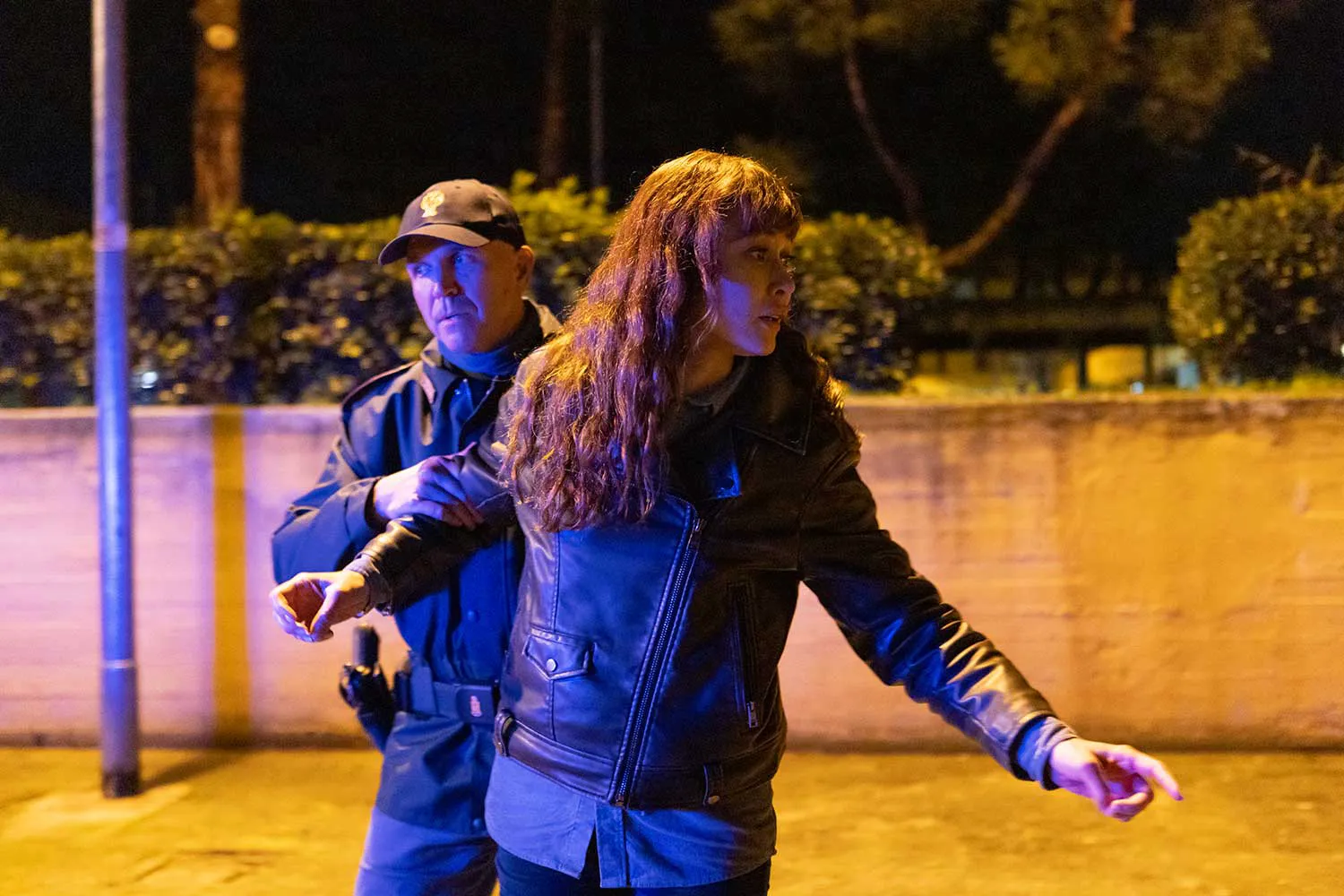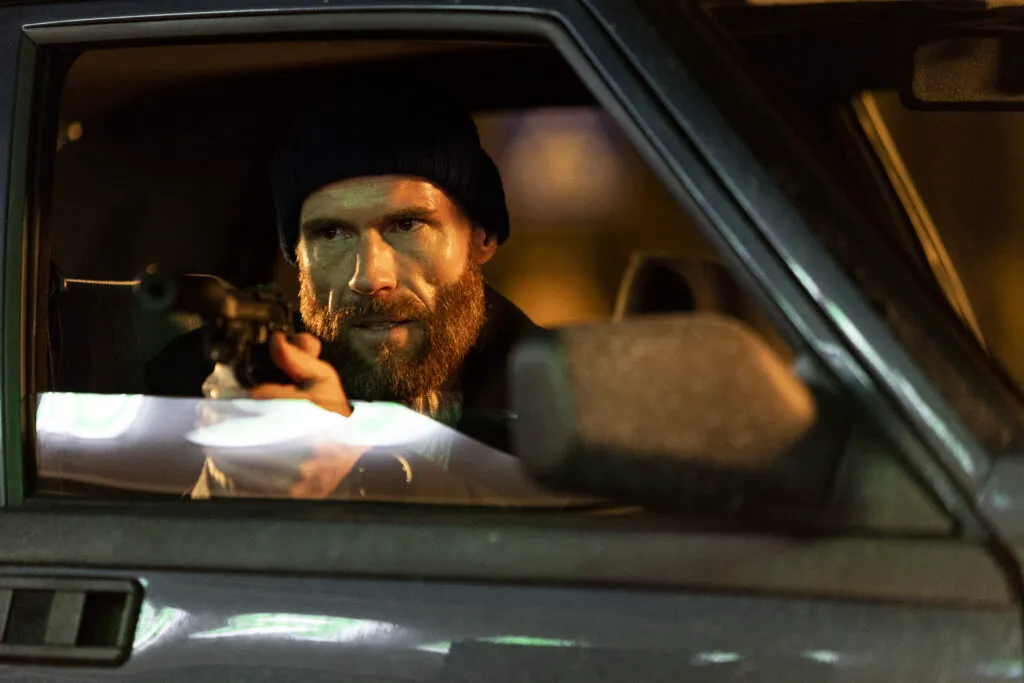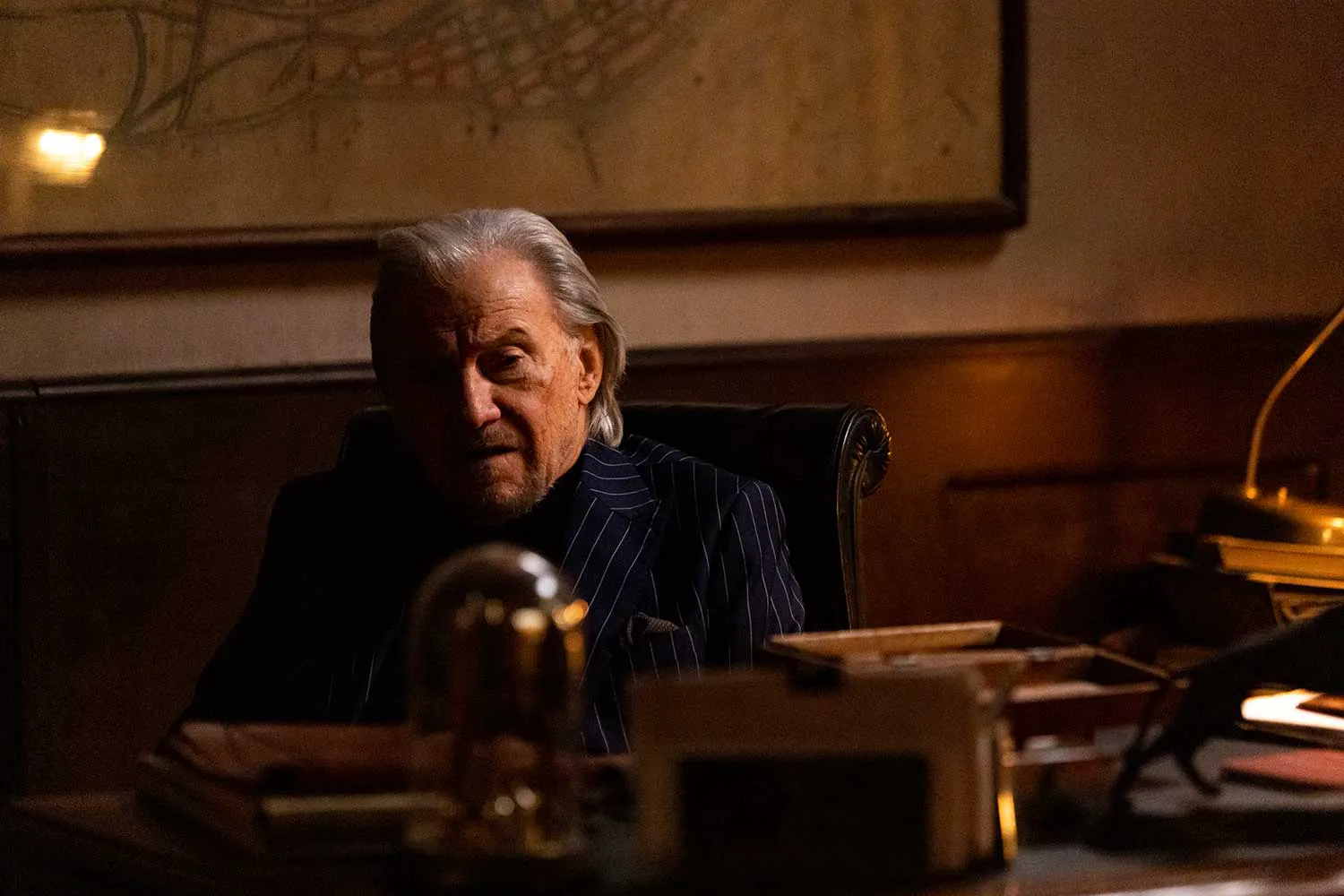Former drug addict Karina (Olga Kurylenko) inadvertently witnesses a mafia showdown. Now, she and her daughter, Lucy (Alice Aston), are held hostage by Kovek (Oliver Trevena), a hitman who hopes to use them to recover stolen goods for the Italian mafia.

Olga Kurylenko as Karina in a still from “Paradox Effect”
Scott Weintrob, a photographer and director of commercials (also known for the Netflix reality show “Fastest Car”), attempts to cram as many tropes from cool action movies as possible into his first feature film, naively hoping to captivate discerning viewers. However, the result, instead of a postmodern effect of recognition, evokes the opposite feeling. Weintrob’s action lacks cohesion and a consistent storyline, causing the film to fall apart into a series of loosely connected episodes.
A Missed Opportunity for Depth
The theme of overcoming drug addiction, initially introduced with the character of Karina, is never developed further, unless you count her efforts to procure the drugs the hitman missed through her dealer connections. The involvement of an average person in mafia affairs immediately brings to mind not only Michael Mann’s “Collateral” but also the thriller “The Walls,” where Olga Kurylenko’s character was also forced to work for the mafia against her will.

Oliver Trevena as Kovek in a still from “Paradox Effect”
Uninspired Character Development
In his clear homage to “Collateral,” Scott Weintrob tries to explore the theme of loneliness in a big city through philosophical dialogues between the characters. However, his hitman, Kovek, is nowhere near as charismatic as Tom Cruise’s Vincent. The fact that he is not just a hired killer but essentially a hostage of the mafia himself, forced to do dirty work to pay off a debt, changes nothing. The writers fail to evoke sympathy for Kovek because they don’t create a psychologically convincing character. The script does not reveal the killer’s personality. He remains throughout the film a generic Interpol agent who uses his connections in law enforcement to “clean up” after the mafia.
The director’s attempts to criticize the system are futile: Kovek is just as corrupt a cop as those he tells his hostage about. In the viewer’s eyes, Kovek’s noble motive of saving his son from the mafia could partially justify his criminal behavior if, again, the filmmakers had managed to individualize the character. Then his unexpected sympathy for the hostage would seem like a natural development of their relationship—from hatred to mutual respect. As it stands, it’s too obvious that Scott Weintrob wants to shift “Paradox Effect” from a loose remake of “Collateral” into a revenge story, pitting Italian mobsters against a corrupt cop in a decisive showdown. It’s no coincidence that Kovek’s on-screen persona is a cross between Hitman and Jason Statham’s characters (Oliver Trevena even resembles him physically).

Harvey Keitel as Silvio in a still from “Paradox Effect”
Lack of Originality and Style
To make the viewer sympathize with the characters’ desire to avenge themselves against the mafia, Weintrob’s film lacks drama and its own style. Besides narrative techniques borrowed from “Collateral” and a dozen other action movies, like the classic “street” action film with Steven Seagal, “Out for Justice,” there is nothing else in “Paradox Effect.” As if to finally convince the viewer that the director has nothing new to say, the director uses a handheld camera and panoramic shots of the city at night in the “street scenes.” But instead of creating a sense of presence, it reinforces the feeling of being derivative, as Weintrob’s “subjective camera” is too similar to the visual techniques of Michael Mann, Steven Soderbergh (“Traffic”), and other urban action directors. The only bright spot in this dark realm of banality is Harvey Keitel, who brilliantly plays yet another mafia boss. The actor’s charisma is enough to draw attention to himself in every scene he appears in. It’s just a shame that there are so few episodes with him.
Scott Weintrob’s debut action film is frankly unsuccessful because it is completely devoid of originality and fails to maintain tension. The viewer can accurately predict several moves ahead how the events will unfold. If you add to this a huge number of logical inconsistencies (the plot has more holes than Swiss cheese, as they say in such cases), then the first feature film by commercial director Weintrob hardly justifies the time spent watching it.